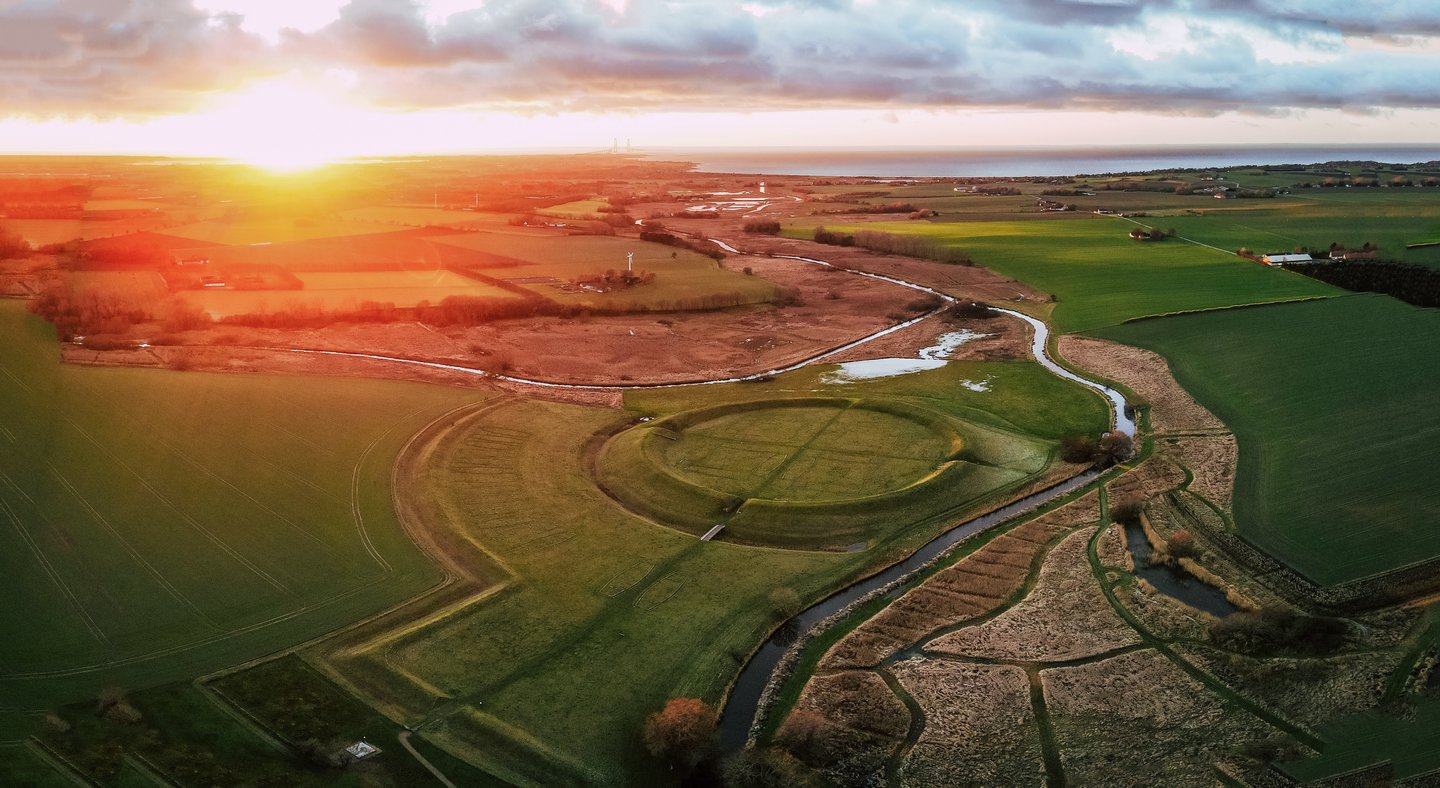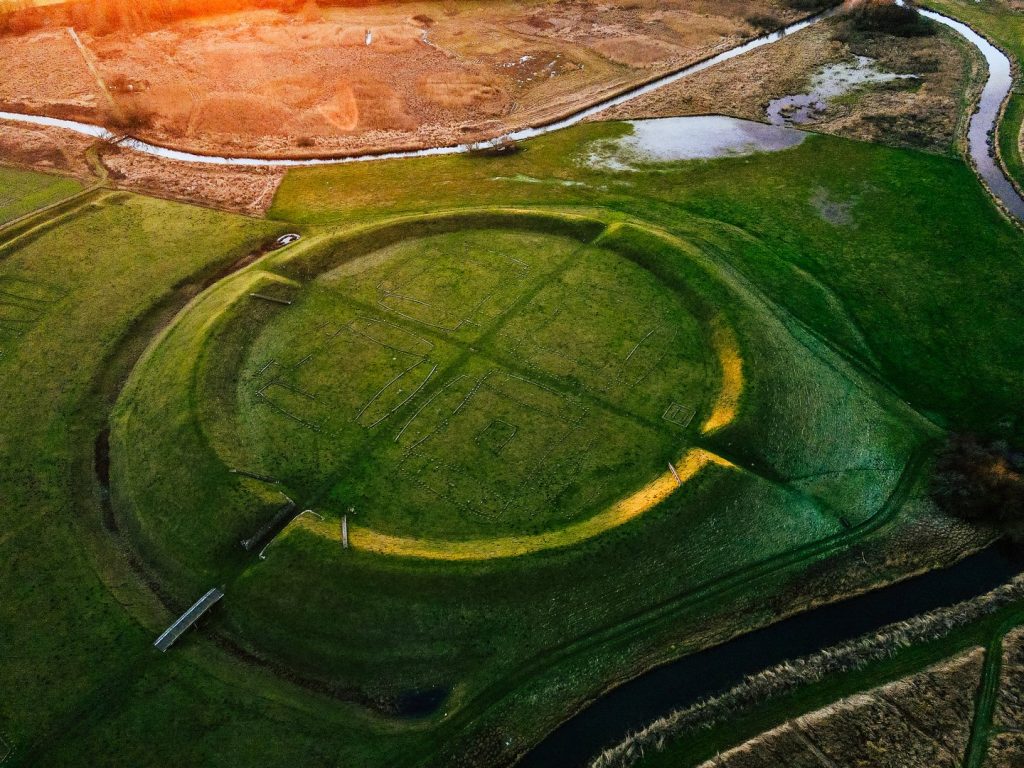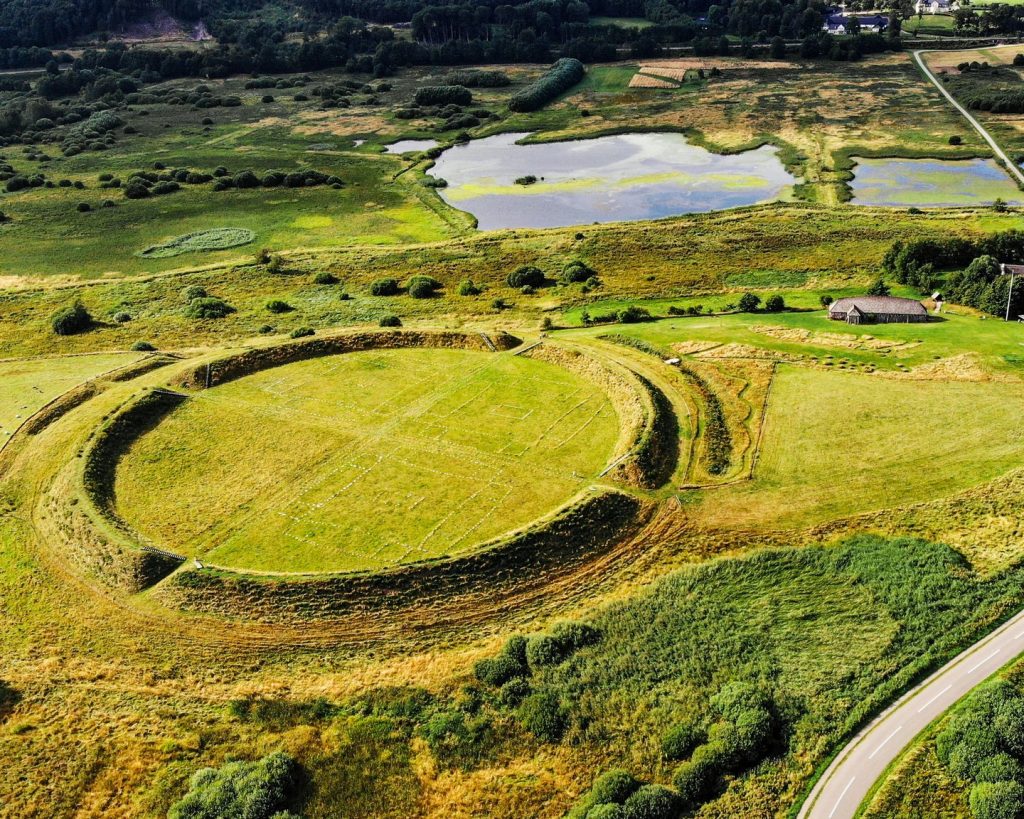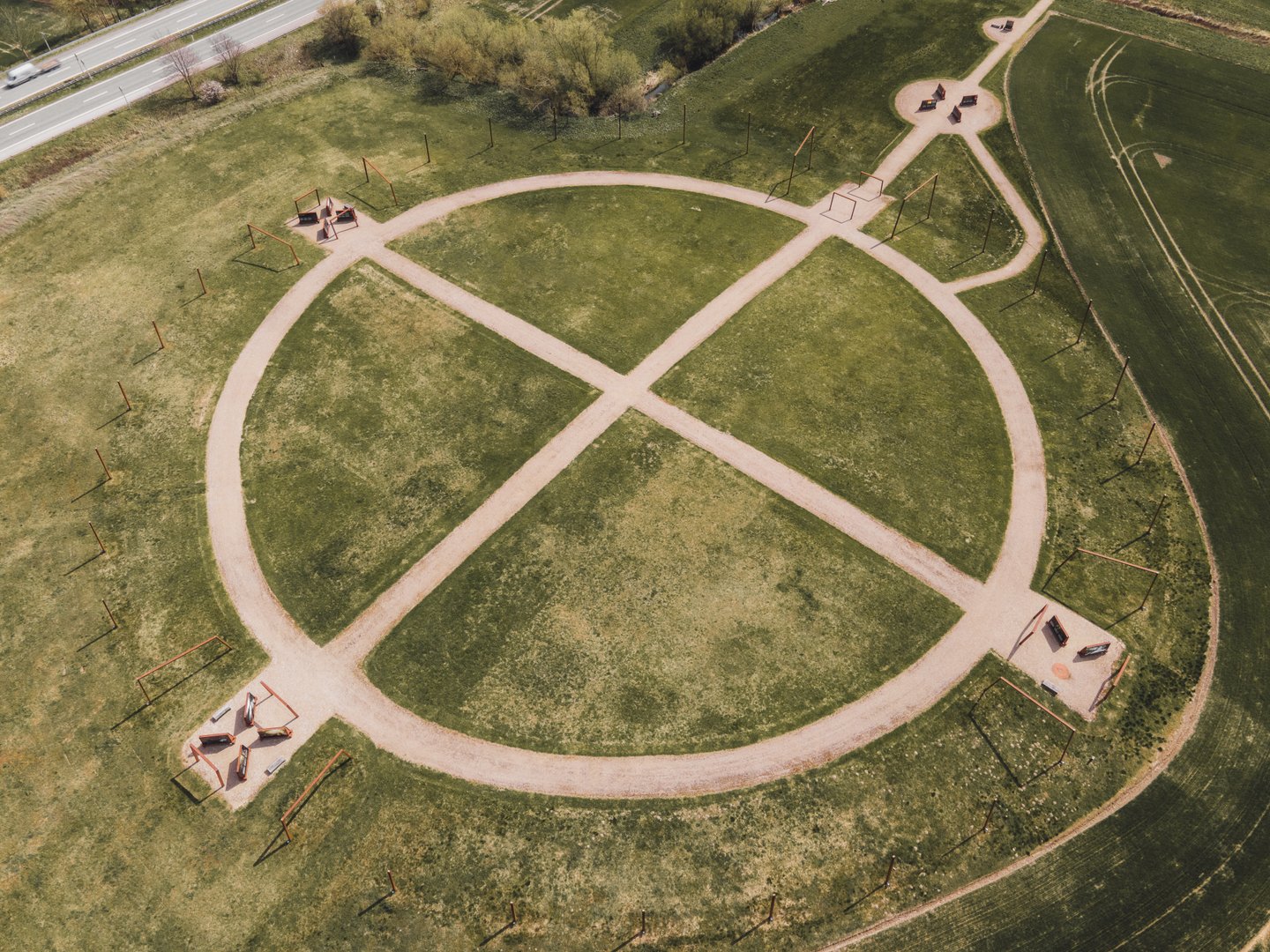UNESCO World Heritage Sites await your exploration, and they are ready to share their stories with you.
UNESCO World Heritage Sites hold a special place in the hearts of travellers and history enthusiasts alike. These sites are recognised for their cultural, historical, scientific, or natural significance, and they offer a glimpse into the rich tapestry of our world’s heritage. In this blog, we’ll embark on a virtual journey through the Nordics, Baltics, and Balkans, regions known for their captivating landscapes, rich histories, and diverse cultures. We’ll explore UNESCO-listed treasures that have been bestowed with this prestigious status, shedding light on their unique features and why they are worth visiting.

Trelleborg by Daniel Villadsen
-
Viking Ring Fortress, Denmark
Location: https://www.google.com/maps/search/Viking+Ring+Fortress,+trelleborg/@55.3579693,10.8465658,10z?entry=ttu
Summary: Nestled in the picturesque landscape of Denmark, the Viking Ring Fortress is a remarkable historical site that offers a captivating glimpse into the era of the Norse warriors. This UNESCO World Heritage Site, also known as the “Trelleborg,” is one of Denmark’s most well-preserved Viking-era fortresses and serves as a tangible testament to the military prowess and strategic acumen of the Viking civilization.
The Viking Ring Fortress is characterised by its distinctive circular layout, featuring a massive earthen rampart and a perfectly circular shape with a diameter of approximately 120 meters (394 feet). The circular design of the fortress is indicative of its military purpose, as it allowed for optimal defense and control of the surrounding territory. This architectural marvel dates back to the Viking Age, specifically the 10th century, a period known for its Viking expansion, exploration, and influence across Europe.
Visitors to the Viking Ring Fortress have the opportunity to step back in time and immerse themselves in the world of the Vikings, understanding their way of life, their warrior culture, and their impact on European history. The site’s inclusion on the UNESCO World Heritage List recognises its importance in preserving and promoting the heritage of this legendary civilisation.


-
The Vega Archipelago (Norway)
Location: https://www.google.com/maps/place/Vega%C3%B8yan/@65.6063207,11.5335379,9.5z/data=!4m6!3m5!1s0x4674bc6bcc6b6c07:0xde8995286e9be4f!8m2!3d65.665547!4d11.9289227!16zL20vMGZnY3Yx?entry=ttu
Summary: The Vega Archipelago is a stunning collection of islands, islets, and skerries located along the Norwegian coast. It is not only known for its outstanding natural beauty but also for its unique fishing traditions and eider duck farming. The archipelago provides a glimpse into centuries-old sustainable practices and a harmonious relationship between humans and nature.
-
Historic Centre of Tallinn (Estonia)
Location: https://www.google.com/maps/place/Vanalinn,+Tallinn,+Estonia/@59.4377385,24.7330444,15z/data=!3m1!4b1!4m6!3m5!1s0x46929362679c3539:0x56e9b9445eb31dc5!8m2!3d59.4363739!4d24.7445844!16s%2Fm%2F09v0v9_?entry=ttu
Summary: Tallinn’s historic center is a well-preserved medieval gem, complete with cobblestone streets, city walls, and charming red-roofed houses. Visitors can step back in time while exploring its Gothic and Baroque architecture, and enjoy the enchanting atmosphere of one of Europe’s best-preserved medieval towns.
-
Dubrovnik Old City Walls (Croatia)
Location: https://www.google.com/maps/place/Dubrovnik+City+Walls/@42.6457376,18.070285,14z/data=!3m1!4b1!4m6!3m5!1s0x134c0b329cd54c57:0x96dd7d686f19e991!8m2!3d42.6457078!4d18.0908845!16s%2Fm%2F080ntz4?entry=ttu
Summary: Dubrovnik’s old city walls are an iconic sight on the Adriatic coast. These massive fortifications encircle the historic center, offering breathtaking views of the city and the shimmering sea. Walking along the walls, you’ll be transported to a time of medieval splendour and maritime power.
-
Rila Monastery (Bulgaria)
Location: https://www.google.com/maps/place/Rila+Monastery/@42.1316388,23.3410037,15.75z/data=!4m6!3m5!1s0x14aae2bf1d3ad519:0xe08b0af1b5c27722!8m2!3d42.1334828!4d23.3401919!16zL20vMDNjODFy?entry=ttu
Summary: Nestled within the scenic Rila Mountains, the Rila Monastery is a masterpiece of Bulgarian Revival architecture. Its colourful frescoes and ornate interior provide a glimpse into the rich spiritual and artistic heritage of Bulgaria. The monastery’s peaceful setting adds to its allure.
-
Laponian Area (Sweden)
Location: https://www.google.com/maps/place/Visitor+Center+Laponia/@67.4768438,18.3496747,17z/data=!3m1!4b1!4m6!3m5!1s0x45d9c007832dac89:0xba7ddb5f7a812146!8m2!3d67.4768418!4d18.3522496!16s%2Fg%2F11c5hj3_9r?entry=ttu
Summary: Laponian Area, in the northern reaches of Sweden, is a haven of pristine wilderness. This UNESCO site comprises national parks and nature reserves that are home to the indigenous Sámi people. Visitors can experience Arctic landscapes, reindeer herding, and the beauty of the Northern Lights.
-
Struve Geodetic Arc (Multiple Countries)
Location: Multiple locations across ten countries
Summary: The Struve Geodetic Arc is an international scientific and cultural project that spans ten countries across Europe and Asia. It’s a network of survey triangulations, showcasing the collaborative efforts of scientists to accurately measure the Earth’s shape in the 19th century. Travellers can visit some of the marker points and explore the history of geodesy.
-
Historic Centre of Riga (Latvia)
Location: https://www.google.com/maps/place/Vecr%C4%ABga,+Central+District,+Riga,+LV-1050,+Latvia/@56.9479658,24.0951317,15z/data=!3m1!4b1!4m6!3m5!1s0x46eecfd7054ee4c5:0xf38a7b5d7e78c30f!8m2!3d56.9492755!4d24.1048991!16zL20vMGZqcngw?entry=ttu
Summary: Riga’s historic centre is a testament to its vibrant history and architectural diversity. Visitors can wander through medieval streets, admire Art Nouveau facades, and explore the captivating blend of cultures that have shaped this Baltic gem.
-
Butrint (Albania)
Location: https://www.google.com/maps/place/Butrint+National+Archaeological+Park/@39.7378503,20.0008481,13.5z/data=!4m6!3m5!1s0x135b6bf1957f5065:0x4b917bbf32e7b841!8m2!3d39.7440147!4d20.0194685!16zL20vMDl2ajI4?entry=ttu
Summary: Butrint, an ancient city in southern Albania, offers a glimpse into the rise and fall of various civilizations. From Greek and Roman ruins to Byzantine churches and Venetian fortifications, this archaeological site is a true time capsule of history.
-
Historic Centre of Warsaw (Poland)
Location: https://www.google.com/maps/place/Warsaw+Old+Town,+Warsaw,+Poland/@52.2500337,21.0085107,16z/data=!3m1!4b1!4m6!3m5!1s0x471ecc6f49f976dd:0x50d2f456e2756d4f!8m2!3d52.2477331!4d21.0136079!16zL20vMDdxNWxy?entry=ttu
Summary: The historic centre of Warsaw is a poignant symbol of resilience and rebirth. Reconstructed meticulously after World War II, it showcases the city’s rich heritage, with its Old Town Square, Royal Castle, and colorful facades.
Conclusion:
As you contemplate your next adventure, consider these UNESCO World Heritage Sites in the Nordics, Baltics, and Balkans. These treasures offer not only a chance to explore stunning natural landscapes and architectural wonders but also an opportunity to connect with the history and culture of these diverse regions. Each site has a unique story to tell, and visiting them is a way to enrich your understanding of our shared human heritage.
So, whether you’re drawn to the rugged beauty of the Vega Archipelago, the medieval charm of Tallinn, or the ancient history of Butrint, remember that these sites are not only a feast for the eyes but also an invitation to explore, learn, and appreciate the incredible diversity of our world. Make your travel plans, pack your bags, and embark on a journey that promises to be both enlightening and awe-inspiring.

Borgring by Rune Hansen
All rights reserved Baltic Travel Company October 2023